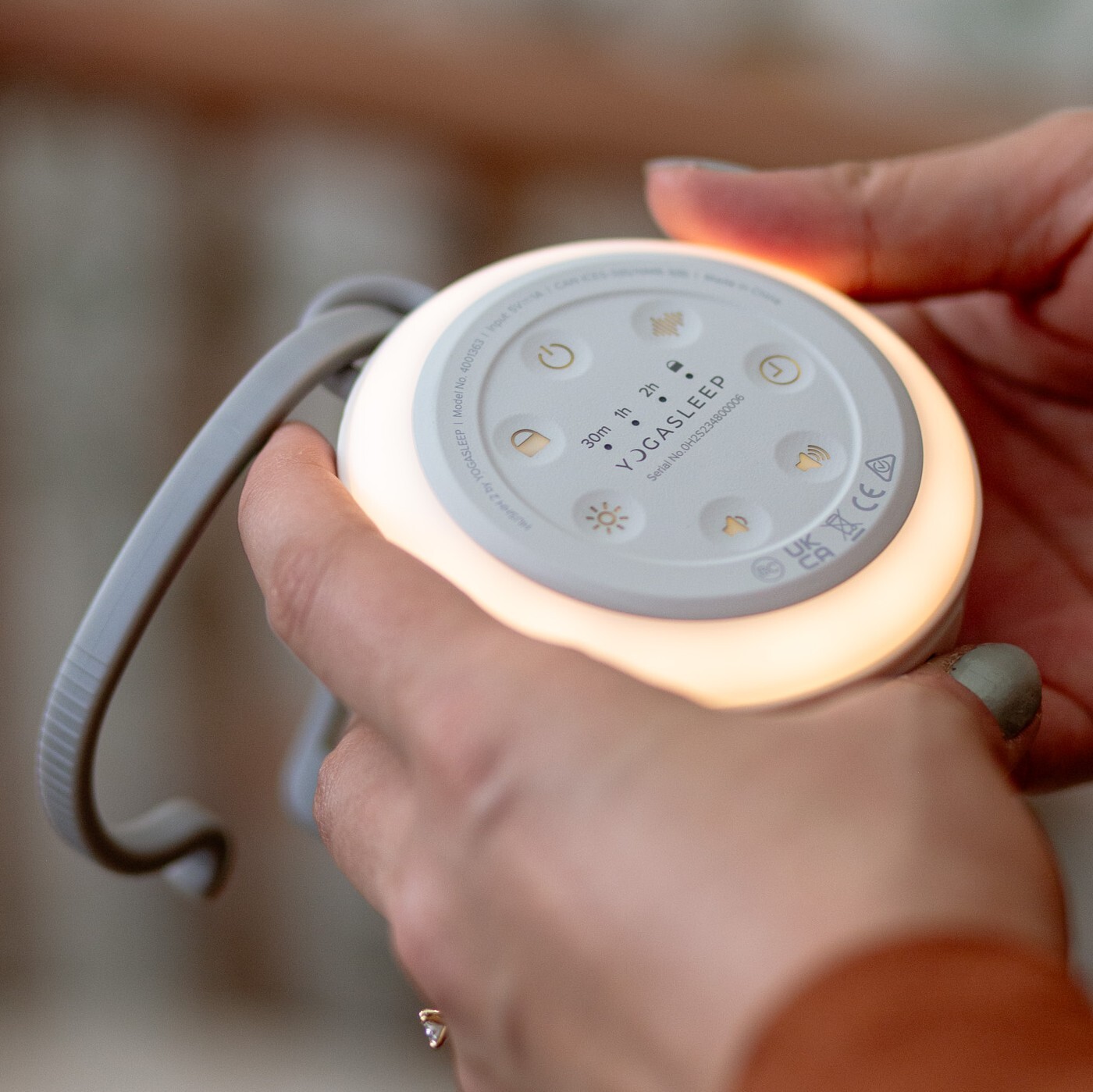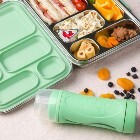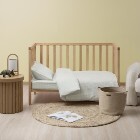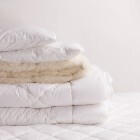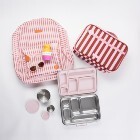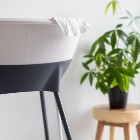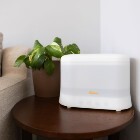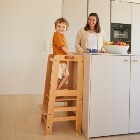Sustainability
At The Sleep Store, our actions and focus around sustainability are guided by our core values - including Sustainable Communities (supporting families, contributing to our community and respecting the environment, to leave the world a better place) and Ethical conduct (doing the right thing, showing integrity and fairness in our relationships and in all we do).
As our business has grown and as awareness has sharpened everywhere about the impact businesses and individuals have on our environment - we have asked ourselves - what can we do to minimize our environmental impact?
We developed a Sustainability Strategy and Plan focussing on 4 key areas:
- Carbon assessment, reduction & offsetting
- Waste stream – packaging and warehouse
- Product stewardship
- Social responsibility
Waste Stream - Packaging and Warehouse
Reducing waste to landfill is a big focus for us, both in terms of reviewing packaging we use, and ensuring that we recycle as much waste in our warehouse as we can.
Packaging - Our Products
When it comes to packaging improvements, our biggest impact has been in our own brand offering, including Woolbabe, The Sleep Store, Nestling, Baby Basics, and Big Bed Bumper. We have largely eliminated the use of plastic packaging in our own brand ranges, moving products to cardboard packaging, biodegradable cloth bags, or glassine bags. Some products, such as the Toddler Cot Size Wool Pillow with Pillowcase, actually use the product as the packaging. The pillow comes in an envelope-style pillowcase, so you simply turn this inside out, wash and use it as the pillowcase. This has resulted in hundreds of thousands of units previously packaged in plastic now in recyclable and biodegradable alternatives.
Packaging is an evolving field, and we are constantly on the lookout for new low-impact packaging options. We have also worked with several brands we represent as a distributor, suggesting improvements to packaging, and avoiding individual polybags where possible.
Packaging - Outward Goods
Over the years we have made many improvements to the recyclability of packaging used to send orders to our customers. We have increasingly turned to branded custom packaging using cardboard cartons and cardboard satchels - which are easily recyclable with kerbside recycling, as an alternative to plastic satchels - which are harder for customers to recycle. We still use plastic satchels where they are the best option for a particular package and destination, but we have substantially reduced the amount of plastic packaging used for outward goods.
Warehouse Waste
We focus on reducing waste to landfill by recycling packaging material and waste in many ways, including:
- Reusing incoming cardboard cartons for outbound packages
- Recycling cardboard and paper
- Recycling clear and coloured soft plastics
- Recycling polystyrene
- Recycling all organic waste (this goes home to worm farms to feed the vege garden)
Carbon assessment, reduction and offsetting
As an online retailer and importer, we are involved in moving goods from suppliers to our warehouse and from our warehouse to customers, which invariably results in carbon emissions, the primary cause of global warming. We decided that the best way to quantify this impact and do something about it was to engage Toitū Net Carbon Zero to audit our emissions as a business, and then for us to offset these emissions to become a carbon-zero business.
We had our first audit in 2022 which quantified the carbon emissions from our business activities in the 2021 calendar year. It was a big learning curve for us. Unsurprisingly we found that 95% of our emissions come from inward and outward freight. We now offset 100% of our emissions through the purchase of carbon credits. It is not a perfect process or model, but it is independent and rigorous, and it sharpens our focus on ways to reduce our emissions. The purchase of carbon credits helps fund initiatives in New Zealand and other countries which reduce carbon emissions or capture carbon through forestation.
Our Toitū Net Carbon Zero accreditation includes an annual audit and regular goal-setting to identify ways to continually reduce our overall emissions. Key focus areas in our first year have been to reduce the average parcel volume of all our outward packages and to bring goods by sea freight rather than air freight wherever possible. We have already achieved significant reductions in our emissions during our first year.
If you have any feedback, positive or negative, regarding our Toitū Net Carbon Zero programme please let us know by emailing us here.
Product Stewardship
We've always taken pride in offering products that are both practical and durable. Many of our products are made with natural fibres - merino, cotton or organic cotton. Not only do these break down more quickly, they are also more breathable and better for regulating temperatures. Synthetic fibres can take 20 to 200 years to break down, but natural fibres like cotton, wool and silk can break down in as little as 5 months.
When it comes to products we distribute and manufacture, we try to help prolong the life of items by carrying spare parts. We have more to do in the area of product stewardship. We are interested in developing better end-of-life advice and options for products we sell and distribute.
Social Responsibility
Social responsibility has many dimensions. When it comes to products we manufacture, we are progressing social responsibility audits for our manufacturing partners, to ensure that working conditions and pay are fair. As an employer, we support the Living Wage movement, as a Living Wage employer.
We also support a number of charities that we see doing great work in the community, such as Give a Kid a Blanket, and The Kindness Collective. We have been a collection point for Give a Kid a Blanket since their first year, and we regularly give bedding and sleepwear from our stock, to help with each year's campaign to provide warm clothing and bedding to those in need.



